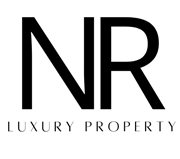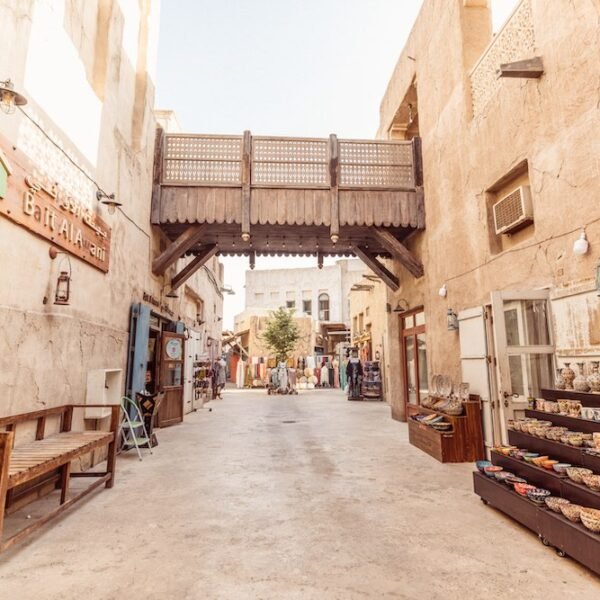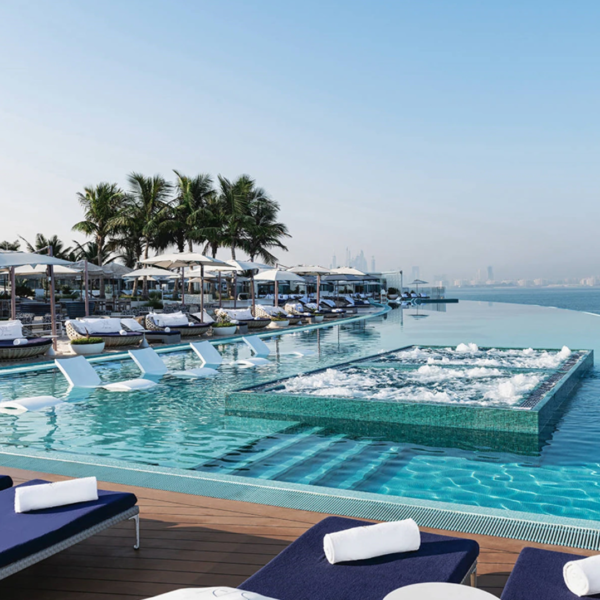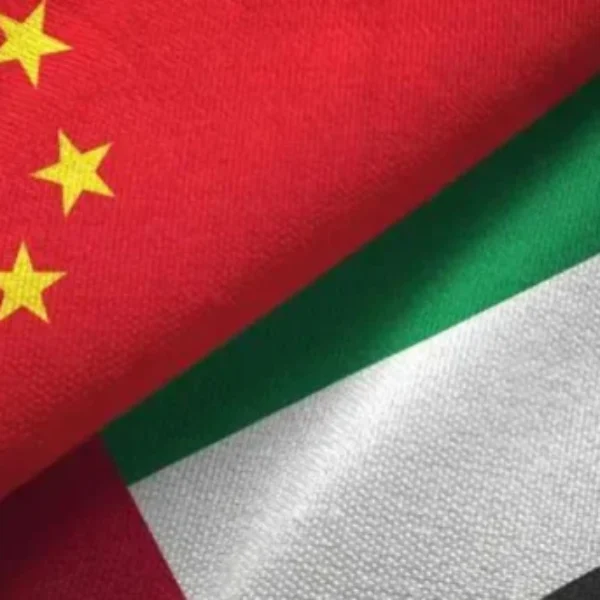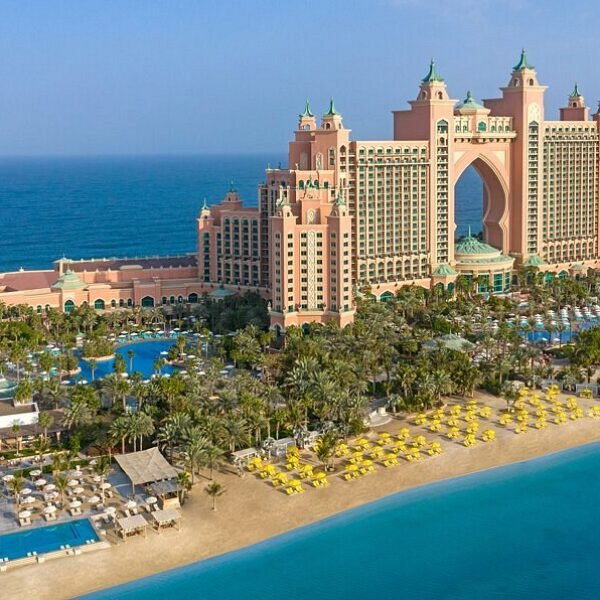Best Ways to Invest Money in Dubai
Foreign investors and residents of the UAE have many options for investing in a state that is well protected on a legislative basis. These include investments in savings accounts, pensions, real estate, businesses, stocks and mutual and equity funds.
We have prepared a special guide for first-time investors to help them understand the main ways to invest in the UAE. In addition, you will find information about the investment climate in the UAE, investment taxes and where to seek help and support for businesses in the UAE.
Investment in The UAE
The UAE government supports investment in the country by providing a favorable legal and financial environment for business. The state also has one of the freest economies in the world. The business culture of the country is focused on a global scale, as a result the UAE attracts a large number of investors from all over the world. For example, according to the Global Competitiveness Report for 2021 from the World Competitiveness Center, the UAE ranked first in the region and ninth in the world in terms of investment attractiveness.
In 2020, the inflow of foreign direct investment (FDI) increased by 44% compared to 2019 and amounted to AED 73B (USD 19B). The global report on FDI for 2021, published by the United Nations Conference on Trade and Development, reports that the UAE ranked first between the Arab states of the Persian Gulf and 15th in the world in terms of its ability to attract FDI.
Due to the growth of investments in the country, the choice of asset classes is also increasing. Investors can choose between buying real estate, trading on the stock exchange, private pension schemes, deposit accounts and funds. Investments are available not only in Dubai but also in Abu Dhabi, Sharjah and the emirate of Ras al Khaimah.
The UAE has an attractive investment environment for many reasons. The main reason being the government’s encouragement of small and medium-sized enterprises, the flexibility of the business environment, the sustainability of the economy and the constant updating of regulations and procedures in accordance with international standards in order to create an ideal platform for economic success. The latter includes investments in the country’s digital infrastructure and legislative changes to create a more competitive regulatory framework. According to the forecasts of the UAE Central Bank, real GDP growth in 2022 will be 3.5%, and real non-oil GDP growth will be 3.9%.
The Investment Climate in The UAE
The UAE government is pursuing economic diversification, which has a positive effect on the development of the private sector and reduces the state’s dependence on the unstable oil and gas industry. The country attracts investments in various areas to diversify the economy, including logistics, healthcare, scientific research, renewable energy, food security, manufacturing and advanced technologies.
The government is taking various measures to attract more FDI for the development of the country. This year, the UAE has introduced a new industrial strategy, which aims to increase the contribution of the industrial sector from AED 133B to AED 300B (USD 81B) in the next 10 years. According to the words of Sheikh Mohamed bin Zayed, the goal of the programme is to double the contribution of the industrial sector to GDP, as well as to increase the value within the country. The basis for the national initiative is the country’s investment benefits to ensure sustainable economic development after the COVID-19 pandemic.
The Operation 300bn campaign includes the creation of 13,500 industrial companies. According to the programme, the amount of investment in R&D in the industrial sector will be increased from AED 21B to AED 57B by 2031, and the marketing campaign ‘Make it in the Emirates’ will emphasize the advantages of manufacturing in the UAE and create a reputation for quality. Both the UAE initiatives – Operation 300bn and Make it in the Emirates – are aimed at restructuring the industrial ecosystem in the country. Their common goal is also to create new jobs, increase competitiveness and stimulate R&D.
In 2020, the UAE issued Federal Decree-Law Number 26, according to which 100% foreign ownership of businesses in many spheres was allowed in the country. Previously UAE companies had to have a UAE citizen or a GCC national as a majority shareholder of the company. Joint-stock companies in UAE are also no longer required to be headed by a citizen of the UAE or that the majority of the board members must include citizens of the country. In addition, local branches of foreign companies no longer need a UAE citizen or a UAE-owned company to act as an agent. But the new provision will not apply to companies operating in strategically important spheres such as oil and gas, utilities, defense and transportation.
Dubai’s Department of Economic Development launched the Dubai Investment Development Agency (Dubai FDI) in 2015 in order to provide the necessary information and support to foreign investors and companies. In 2018 Abu Dhabi’s Department of Economic Development launched the Abu Dhabi Investment Office, which provides investors with data on the investment environment of the emirate. The opening of such an establishment in the UAE capital was also achieved in order to attract foreign investment into the local economy.
The country has signed more than 135 double tax agreements with other countries in order to allow investors to benefit from the absence of personal income tax as well as corporate taxes from their own country. The UAE has also signed 101 agreements to protect investments from expropriation, nationalization, freezing and sequestration.
Creation of An Investment Plan
Depending on the direction of financial investments, the investor draws up either a business plan or a personal investment plan. In the first case, the necessary points are described for successful investment in commercial projects and enterprises, while in the second case the goals, methods and tools for personal investment are identified.
Investment Business Plan
Before investing in any commercial project, it is necessary to draw up an investment plan that contains a clear and understandable description of the project where the money will be invested. The plan also forms the basic idea of investments, the rationale for their feasibility, costs and the amount of income they will generate from the actual investment.
A properly drawn up investment plan should answer questions such as:
- What is the direction and what are the goals of this activity?
- What will be the income and expenses?
- What methods will be used to achieve investment goals?
- Who will be responsible for the implementation of investment activities?
- What risks may arise in the financial and economic aspect?
According to the rules for drawing up an investment plan from the United Nations Industrial Development Organization (UNIDO), it should include the following sections:
- Introductory part (short summary). All general information about the investment project or business that plans to be financed is indicated here. For example, a description of the project goals, the novelty, a general overview of the financial market, a description of the competitive environment, etc
- Marketing plan. This includes the assessment of sales markets, methods of advertising, the definition of a pricing strategy, and so on
- The production plan implies a description of the production process, an estimate of the cost of raw materials and equipment, determining the required number of employees, etc
- Organization of the project implementation process. This section describes the organizational and legal structure of the enterprise, labour resources, distribution of responsibilities among employees, and so on
- Financial plan. The last section is key for the investor when making the final decision. It is the financial plan that shows how much return an investor can receive on their investment and how long this will take. This includes forecasting income and expenses, the balance of assets and liabilities, risk analysis, payback calculation, etc
Personal Investment Plan
Before investing money, any investor needs to draw up a personal investment plan, which will clearly spell out the investment goals, as well as methods and tools to achieve them.
The content of the investment plan is created individually for each investor. But any personal plan should include elements such as:
- Clear investment goals
- Investment strategies
- Sources of funds for investments
- Acceptable risks
An important stage before drawing up and implementing an investment plan is preparation, which implies an assessment of the financial condition of the investor and putting things in order in monetary matters.
Important: Investors cannot invest borrowed funds. Before allocating funds for investments, the investor needs to close all loans and create a financial “safety cushion”. Creating a reserve of funds is a prerequisite for investing since it is unwise to withdraw invested funds or use borrowed sources in case of unforeseen circumstances for the investor.
Savings Account Investments in The UAE
Savings accounts are a kind of bank account that helps investors earn a profit while keeping their funds safe. In the UAE such accounts offer interest rates depending on the funds investors have deposited. Interest rates in different banks within the country vary. For example, when opening an Emirates NBD Standard Savings Account, the investor is guaranteed 0.36% annual return, while a RAKBank Savings Account may only give you a profit rate of 0.25%. The benefits of opening savings accounts in some UAE banks, such as Emirates NBD or CBI Bank, include a free debit card and/or a free chequebook.
The investor needs to maintain a minimum savings account balance, which is usually about AED 3К (USD 816). Some banks in the UAE, such as, for example, ADCB and ADIB, also offer savings accounts with a zero minimum balance.
Investors can visit the nearest branch of their preferred bank in the UAE or apply online in order to open a savings account, in which funds can be withdrawn, deposited and transferred anytime.
The necessary documents for opening the account in the UAE comprise:
- For residents: passport, Emirates ID and resident visa
- For non-residents: passport of the applicant, bank statements and proof of address
Important: Before opening a bank account, make sure that you are aware of all possible fees and are familiar with the attached terms and conditions.
In the UAE, local banks offer expats a large selection of savings deposits at attractive interest rates, with both ordinary and Sharia-compliant options among them. In the latter case, it is implied that the bank adheres to Islamic principles. If a depositor opens such an account, the bank will not pay interest on the savings, but will pay the profit made on the savings deposits.
Below we have listed some of the best savings accounts in the banks of the UAE.
Emirates NBD Savings Account
It is a high-interest yielding account, the maintenance of which is available in AED. Free debit card is also available. This savings account is one of the best in the country. Annual return constitutes 0.20%. Local and international remittances are free of charge. The minimum balance for maintaining the Emirates NBD savings account is AED 3К (USD 816). Investors won’t have to pay an annual fee or a fee for opening the account.
Applicants for opening the savings deposit must be more than 18 years old and have an Emirates ID, an active UAE mobile number, passport, proof of income and a minimum salary of AED 5,000 (USD 1,361). The savings account complies with Sharia law and is based on the Islamic principle of Mudaraba (customer shares profits and bear losses as stipulated in the Banking Service Agreement).
ADCB Active Saver Account
The ADCB (Abu Dhabi Commercial Bank) Active Saver Account can be easily opened online. Interest is calculated every day in accordance with tiered interest rates and is paid every month. Customers of ADCB can open a savings account in AED and USD. The maximum interest earned per annum on AED accounts is up to 0.80% and on USD accounts is up to 0.35%.
ADCB Active Saver Account is Sharia-compliant and there is no annual fee or requirement for minimum balance. The account does not provide any chequebook or ATM cards. If the applicant’s salary is not transferred or the total relationship balance is not maintained, the monthly fee to the amount of AED 25 (USD 7) is charged. Collection of payment is done on a monthly basis in accordance with the agreement, where the date of payment is given.
Only UAE nationals and residents with a valid visa can open an ADCB Active Saver Account. Applicants must also be 21 years old or above. The opening of an Active Saver account is available only after having an ADCB Current or Savings Account.
ADIB Smart Banking Account
ADIB (Abu Dhabi Islamic Bank) Smart Banking Account is a zero balance account in the UAE. Every resident of the UAE over the age of 18 has the right to open and use the account. Applicants must either be 18-24 year old students or must have a minimum salary of AED 5К (USD 1,36К). There is no minimum balance required for the maintenance and no annual fees.
Profit can be made on the account balance as the interest rate is on every dirham in ADIB Smart Banking Account. It is also possible to receive remuneration when transferring wages to the account. The Smartdeals app is available for customers to help manage their money, and if clients engage a friend in the money smart community, they will earn a smart bonus of AED 20 (USD 5).
The savings deposit is available for both UAE nationals and expats. Even individuals with no income like housewives (with a housewife visa status) are eligible for the account. The required documents for the opening of the ADIB Smart Banking Account include a valid Emirates ID, valid passport and UAE residence visa for expats.
RAKBANK Savings Account
There are different options of savings accounts to choose from via RAKBank in the UAE. The bank provides zero balance accounts with low fees and charges and the account is available in AED, USD, EUR and GBP currencies. If you want to open a savings account in any other currency, you can raise a request to the bank. The profit rate constitutes up to 0.25%. Interest is calculated every month and paid every 6 months for AED/USD/GBP currencies, while interest charges for Euro, CHF & JPY currencies are accrued daily and applied monthly. No interest will be credited if it is less than AED 10, USD 3 or GBP 2.
A free debit card is provided, but a chequebook is not offered. The holder of the account can do 1 cash withdrawal or 5 utility bill payments per month. The minimum balance for maintaining the account is AED 3К (USD 816), but this is not required for the first 3 months. If this amount of money is not maintained, AED 25 (USD 7) in the currency of the Savings Account will be incurred. There are no monthly or annual fees to obtain the account.
CBI Saver Account
The holder of the CBI saver account can withdraw their money as many times as he/she wants. The account is available for minors and joint-account holders and can be opened only in AED. The bank also provides free international debit cards and the minimum balance for maintaining the account is AED 3К (USD 816). If the holder doesn’t maintain the minimum balance, AED 25 (USD 7) will be charged as a fall below fee. There are no monthly and account opening fees.
The bank credits the interest to the saver account on a monthly basis and it is calculated on your activity and daily balance. The interest rate constitutes 0.55% – 1.70% per annum. In order to receive a rate of 0.55%, the investor needs to maintain from AED 10К (USD 2.72К) to AED 300К (USD 81.68К) in the account at all times. With balances from AED 2М (USD 545К) to AED 5М (USD 1.36М), the interest rate will constitute 1.70%.
The required documents for opening a savings account include the original passport of the applicant (with at least 1-month validity), a valid visa for expatriates, a valid Emirates ID, proof of address, birth certificate or passport for children’s applications and a minimum deposit to open the account.
Savings Account Investments in The UAE
Expats working in the UAE are not entitled to state pension, but they can apply to the “Retire in Dubai” programme and get a 5-year retirement visa or receive a corporate pension. At the moment, draft laws on pensions for expats are under discussion in the UAE. According to these draft laws, employers of foreign nationals will have to contribute the established amounts to the pension fund, so that expats will be able to receive a pension when the time comes for them to retire.
The DIFC Employee Workplace Savings (DEWS) project was launched in Dubai International Financial Centre in February 2020. According to the DEWS, companies in the free zone, where expats work, are required to make contributions to a centralized investment fund every month. The size of the pension contribution varies from 5.83% to 8.33% of the employee’s salary. These savings are paid instead of a one-time allowance when an expat employee is dismissed or resigns. Previously, private pension programmes for expats in the UAE were offered only by the Jumeirah Group hotel chain, the National Bank of Abu Dhabi and Emirates airline.
“Retire in Dubai” Programme
Foreign investors can also apply for the Retire in Dubai programme. According to the website of the retirement scheme, one of the following financial conditions must be met in order to participate:
- The monthly income should be at least AED 15K (USD 4K)
- A bank deposit must be opened to the amount of AED 1M (USD 275K) for a period of 3 years
- Real estate in Dubai must be purchased to the amount of AED 1M (USD 275K)
- Combined option of points 1 and 2, valued at a minimum of AED 1M (USD 275K) in a 3-year fixed deposit and property, worth AED 500K each
If one of the above conditions is met, the investor can receive a 5-year renewable retirement visa and applicants must be at least 55 years old. With this type of visa, you will be considered a resident of the UAE and will be able to freely enter and leave the country at your convenience, as well as having access to all standard services of the state.
The required package of documents for foreign applicants includes a passport copy and those of their dependents (if any) and a copy of the marriage certificate (if sponsoring spouse). UAE residents must additionally provide copies of their current visa and Emirates ID, both for themselves and any dependents.
To fill out an application on the official website of the Retire in Dubai programme, the applicant must pay an application processing fee of AED 91 (USD 25) for each family member. Fees for medical examination, visa status change and other administrative services amount to a minimum of AED 3.6К (USD 1К) per family member.
Important: Upon receipt of a 5-year retirement visa, an expat will receive the status of a resident of the country, but will not receive a UAE state pension.
Property Investment in The UAE
The most attractive real estate investment options in the UAE include:
- Purchase of residential real estate and its subsequent leasing
- Buying of commercial real estate, both outside free economic zones and in free zones. Then the property can be rented out to business owners
- Purchase of hotel apartments
Note: The property investment in the UAE won’t be affected by inflation. On the contrary, real estate prices in the country are only growing. The prices for residential property in Dubai increased 4.4% in the first 8 months of 2021 andnd saw its highest annual growth since February 2015, as stated by real estate consultancy group, CBRE. According to the CBRE report, in Abu Dhabi, average residential prices rose by 2.2% from January to August 2021
Residential Real Estate
Residential property prices in Dubai are lower than real estate in Europe or America. For example, if you want to buy an apartment with an area of about 1,291 sq. ft in Dubai, the cost per sq. ft will constitute about USD 531. In London, this figure reaches about USD 2,363 per sq. ft. Such extremely high prices in the capital of the UK are because of the shortage of new residential complexes in the city, especially in the central area, where there is simply no free space for new projects. For this reason, the prices for the sale and rental of real estate are very high.
Choosing the right district in Dubai to purchase a property is very important because the location affects the expected ROI. Popular tourist areas in the emirate comprise Dubai Marina, Palm Jumeirah and Downtown Dubai. The average occupancy in these communities is above 85% throughout the year and this indicator will only increase due to Expo 2020. Other good areas for purchasing real estate include Sports City, Business Bay, Dubai South and Barsha South. These neighbourhoods are also situated around the exhibition site. Good real estate investments in the emirate of Dubai can offer from 8% to 10% rental returns.
For example, the minimum cost of a 1-bedroom apartment with an area of 859 sq. ft for sale in the Downtown Dubai area is AED 720К (USD 196К) with the starting rental price for an apartment with 1 bedroom in this community costing AED 55К (USD 15К) per annum and an average gross investment yield of 5.35%. But in some places, the ROI can be as much as 7% per annum. The minimum ROI for 2-bedroom apartments on Palm Jumeirah constitutes 6%. The starting cost for an apartment with 2 bedrooms in the same location with an area of 1,633 sq. ft is AED 1.68М (USD 457К) where the minimum rental cost is AED 95К (USD 26К) per year.
Commercial Real Estate
Similarly, investors can get income from investments in commercial property in the UAE. For instance, in Dubai, the minimum price of a warehouse for sale with an area of 4,500 sq. ft is AED 1.39М (USD 378К). And the minimum rental price for a warehouse of this size is approximately AED 92К (USD 25К) per year. The projected ROI for this type of property would be 6-7%.
Hotel Apartments
Investment in hotel rooms is a relatively new initiative in the UAE. Investors can purchase a hotel apartment and then rent it to guests in exchange for the specified payment. In this case, the hotel acts as a management company that controls the entire process for the investor. Hotel guests pay high rates for even a short-term stay because they have access to a variety of hotel amenities.
There are also some investments that provide personal use of the premises by investors, but this is usually limited to a certain number of days per year. But the ultimate investment strategy is to rent out a room throughout the year, without using the investor’s allowance for personal use.
The important benefit of serviced apartments is that they yield higher rates. For example, the minimum cost for buying a hotel apartment with 1 bedroom in a 4-star Citadines Metro Central Dubai is AED 450К (USD 123К). The apartment has 1 bathroom and the property area constitutes 660 sq. ft. The estimated ROI is about 5%. Investors will also have a 2 weeks stay in the hotel during the year as well. Facilities include swimming pools, a fully-equipped gym, sauna and steam room, children’s playground, CCTV and high-speed internet connection.
Business Investment in The UAE
To open a business, a foreign investor needs to apply to the Department of Economic Development (DED) in the emirate, in which the company will be opened, either in Dubai, Abu Dhabi, Ajman, Sharjah, Ras Al Khaimah, Umm Al Quwain or Fujairah. In the DED, investors will get initial approval for a business and will register a trading name.
Investors can also open a business in one of the free zones in the UAE. There are 45 of them in the country. To open a company in these zones, it is necessary to have the following:
- Determine the type of legal entity
- Choose a trading name
- Apply for a business licence
- Choose an office space
- Get pre-approvals and register the business
- Get a business licence
In the free zone, you can create one of 2 types of companies:
- Free Zone Limited Liability Company (FZ LLC) or Free Zone Company (FZ Co.)
- Free Zone Establishment (FZE)
The difference between these kinds of businesses lies in the number of shareholders and whether the shareholder is a legal entity or an individual. Existing local or foreign companies can also set their branches in free zones of the UAE.
In some trade zones, there are no minimum capital requirements for starting a business. One such zone is twofour54 Abu Dhabi. In KIZAD the minimum paid-up capital for an LLC should be AED 150К (USD 41К). Investors can form an FZCo. in the Dubai Airport Free Zone, only if a share capital constitutes a minimum of AED 1К (USD 272) and each share must be in the denomination of AED 1К. Share capital for the formation of an FZE in the Hamriyah Free Zone constitutes AED 150К (USD 41К).
Companies established in free zones are governed by their own rules. To obtain the necessary approval, the investor needs to submit an application with documents, the list of which varies depending on the type of business activity, the kind of company and the requirements of the free zone authority.
The general list of documents for obtaining initial approval includes:
- Completed application form
- Business plan
- Copy of existing trade licence/registration certificate (if you are an existing company and it is applicable for local companies only)
- Coloured passport copies of the company’s shareholder/s and the appointed Manager/Director for the new company
- Specimen signature of the company’s shareholder/s and the appointed
- Manager/Director for the new firm
- Audited financial reports for 2 years for a corporate entity or the certificate of reference from a personal bank of the individual shareholder
- NOC from current sponsor (for individuals)
- Letter of Intent
- Unit title deed
- Registry Identification Code Form (RIC) for Manager/Director (original and notarized)
“Invest in Dubai” Initiative
The UAE government has launched the “Invest in Dubai” initiative in order to attract direct investment interest. The programme has a virtual platform, which features brokers, investors, developers and property shareholders. The platform provides all the necessary information about starting a business in Dubai.
The “Invest in Dubai” initiative gives investors the opportunity to get an Instant License from Dubai’s Department of Economic Development, without any pre-approval. It also allows them to set up companies in the emirate without the requirements for a bank account or a tenancy contract. There are 4 types of companies which are eligible to obtain this license: Limited Liability Company, Sole Proprietorship, One Person LLC and a Civil Company. Licensees will be able to get an establishment card from the GDRFA-Dubai as well as 3 work permits for employees.
Investors can manage their companies on the virtual platforms and observe an overview of partners, KPIs, licenses and so on. There is also a heat map of active businesses in the region, business age range, major activities in the area, etc. The platform has 19 available free zones, which are based on facilities, industry, license type and sector.
Investment Funds in The UAE
In the UAE, investment funds available to expats and foreign investors include mutual and equity funds.
Mutual Funds
Mutual funds are managed by a fund manager, who collects money from investors and then invests them into bonds, stocks, securities and so on. When a manager collects money, they usually split it into smaller parts in order to invest in stocks of different companies, due to which the risk of exposure will reduce. The following financial establishments in the UAE offer mutual funds: Mashreq, ADCB, Citibank, HSBC, CBD, Emirates NBD, etc.
Mutual funds provide a Systematic Investment Plan (SIP), in which investors can invest a certain amount of money every month for a short period of time. Returns will be from capital gains and dividends. The minimum investment amount in SIPs constitutes about AED 734 (USD 200).
Mutual funds make money in 2 ways:
- Dividend/interest: mutual funds purchase stocks or bonds and then obtain dividends or interest, which are distributed among shareowners of the funds (depending on the number of shares)
- Appreciation in the mutual fund’s value: the price of a mutual fund depends on the value of purchased bonds and stocks and demand for this organization
The investor’s share in the mutual fund should grow every day in the best scenario. The price of the investor’s share directly depends on the value of the assets in which the funds are invested. Then, after some time, the investor can sell their share for more than they acquired and receive a higher income.
For example, an investor decided to invest in a mutual fund of AED 100К (USD 27К). At the same time, the cost of one share is AED 1К (USD 272), and the necessary surcharge is 1%. As a result, the price of one share will be AED 1,010 (USD 275). An investor can buy 99 shares for the amount of AED 100К. After a year, for instance, the investor decides to sell their shares in a mutual fund. At the same time, the price of one share has risen by AED 326 (USD 88) and now stands at AED 1.32К (USD 361). With a discount of 1%, the investor will sell their 99 shares for AED 130К (USD 35,4К). As a result the income for the year will be AED 30К (USD 8,2К).
Investing in Stocks and Shares in The UAE
A stock is a part of a company’s capital, which can be owned by investors. Investors can make money by stock ownership in 2 ways:
- Dividends. It is a portion of the company’s net income, which is shared with stockholders. The firm pays dividends based on the number of shares you have. Usually, dividends are paid every 3 months
- Appreciation in the stock price. The increase of stocks’ value is ideal for long-term investing. For example, if an investor purchased a share in a company for AED 80 (USD 21) several years ago and it is now worth AED 175 (USD 47), the investor has earned AED 95 (USD 26)
To invest in the UAE stock market, individuals have to open a trading account with a broker, which must be registered with one of the exchanges. There are 3 exchanges in the country: Abu Dhabi Securities Exchange (ADX), Dubai Financial Market (DFM) and NASDAQ Dubai. Investors will obtain an Investor Number to trade on ADX and DFM. This number is available from the Investor Services Desk at the exchanges.
It is recommended to exercise caution regarding the chosen sector, company, as well as fundamental and economic indicators of the market.
Tax On Investments in The UAE
In the UAE, there is no personal income tax as well as capital gains tax on the sale of real estate or securities by an individual. The government only levies a corporate tax on oil companies and foreign banks. Oil companies are subject to the maximum corporate income tax, which constitutes 55% of the income received in the UAE. Branches of foreign banks are obliged to tax to the amount of 20% of their profit. But companies registered in free zones are exempt from paying corporate taxes for a certain period, which can be extended.
Excise tax in the UAE is levied only on specific goods, which are typically harmful to human health or the environment. Such goods include carbonated beverages (50% excise tax), energy drinks (100% excise tax), tobacco (100% excise tax), electronic smoking devices and tools (100% excise tax) and products with added sugar and/or other sweeteners (50% excise tax).
The amount of rental tax in different emirates of the country varies. In Dubai, expatriate tenants of residential real estate are obliged to pay 5% of the annual rent, while commercial expatriate tenants must pay 10%. Expats in Abu Dhabi are required to pay 3% of the annual rent. In the emirate of Sharjah, tenants, regardless of whether they are UAE citizens or an expat, are obliged to pay a rental tax of 2%.
Investment Advice in The UAE
Most foreign investors in the UAE seek help from government agencies. If you want to open a business in Dubai, you can contact Dubai FDI or Dubai Chamber of Commerce and Industry for help. Business support in Abu Dhabi is provided through the Abu Dhabi Chamber, and Ras Al Khaimah Investment Authority helps entrepreneurs by offering business support services.
In addition, beginner investors can also apply to licensed consulting companies that will help them in matters of choice of investment directions, as well as allowing them to reduce many of the risks to zero and increase capital.
Summary
- Individuals who want to invest money in the UAE can choose between buying real estate, trading on the stock exchange, private pension schemes, deposit accounts and funds
- The Yalla Compare useful online resource provides information about eligibility criteria, features, bank charges, opening procedures and interest rates for savings accounts in the UAE
- Expats working in the UAE are not entitled to the state pension, but they can apply to the “Retire in Dubai” programme and obtain a 5-year retirement visa
- The prices for residential property in the UAE increased by 4.4% in the first 8 months of 2021 which is the highest annual growth since February 2015
- Expats can open a business in the UAE with 100% ownership in one of the free zones
- Investment funds available to expats and foreign investors in the UAE include mutual and equity funds
- Exchange-Traded Funds (ETFs) are one of the most popular investment assets for diversification
OUR NEWSLETTER
Join over 6000 members to get weekly updates
on new off-plan launches and latest news & tips
[mc4wp_form id=”5147″]
